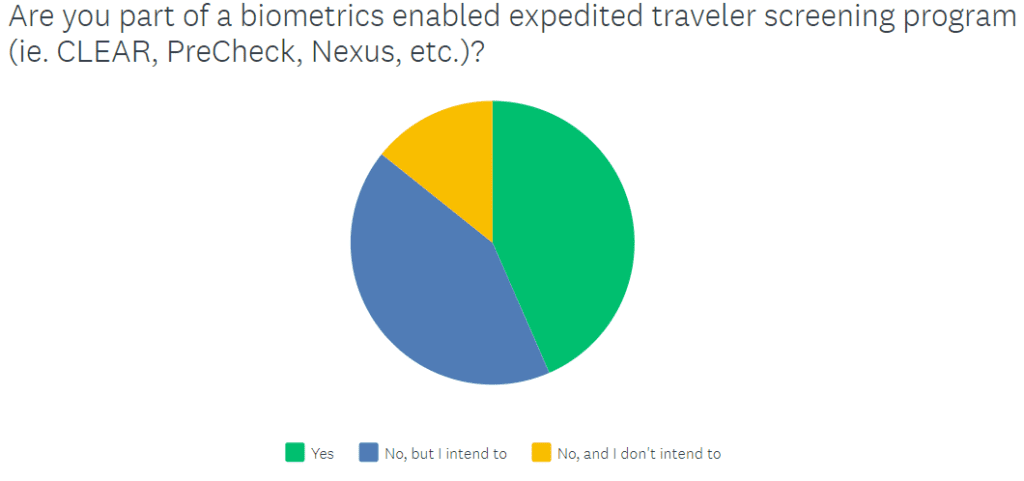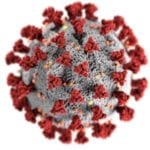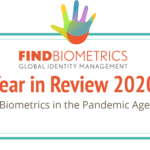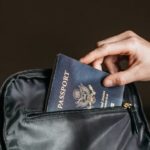As we’ve dug into the results of the latest FindBiometrics Year in Review survey – drawing from over 900 responses – we’ve discovered findings that pretty clearly show the massive impact of the COVID-19 pandemic, such as the new aversion to shared fingerprint readers, for example, and the spike in excitement over remote onboarding solutions. Today, we’ll be delving into some interesting results in which the influence of COVID-19 is more oblique.
The question that concerns us today asked, “Are you part of a biometrics enabled expedited traveler screening program (ie. CLEAR, PreCheck, Nexus, etc.)?” It’s a gauge of enthusiasm over the expanding use of biometrics at airport security on the voluntary, passenger-led side of things. Unlike the accelerating implementation of face-scanning systems by border authorities in the United States and elsewhere, which are primarily understood as national security measures, programs like CLEAR and PreCheck leverage biometric technology to help travelers get through security screening faster and more conveniently.
TSA PreCheck, for example, links travelers’ fingerprint biometrics to their biographic profiles, helping security authorities to quickly verify travelers’ identities. CLEAR, meanwhile, offers a contactless process based on iris recognition, and its network has been expanding to more and more airports in recent years. And the NEXUS program at the US-Canada border now supports facial recognition.
The Year in Review survey results show considerable enthusiasm for these kinds of programs, if not mainstream adoption. About 43.5 percent of respondents indicated that they are part of an expedited screening program, and another 42.3 percent said that they intend to sign up for one in the future.

The results get more intriguing when they’re mapped onto a historical trend. In our 2018 survey, only 34 percent said they were part of an expedited screening program, and that number barely changed in the next year’s survey, rising to 35 percent. So there was a substantial jump in 2020.
Also interesting is the share of respondents who said they’re not part of an expedited screening program and don’t intend to sign up for one. This went from 23 percent of respondents in 2018 up to 27 percent in 2019, and then plummeted down to 14 percent in our most recent survey.
On the whole, the results suggest a big uptick in positive sentiment about expedited traveler screening programs over 2020. In explaining why, it’s hard not to consider COVID-19 – the salient event of the year – though how it would have shaped people’s thinking about biometric traveler screening isn’t clear. One possibility is that people’s newfound aversion to physical contact suddenly made low-friction airport screening options a lot more appealing – especially the contactless variety.
Another factor to consider is the growing familiarity and mainstreaming of biometric technology among consumers in general. In the few years since Apple pivoted to selfie-based phone unlocking with its iPhone X, this approach to mobile authentication has become widespread. Remote biometric onboarding also surged after the pandemic pushed employees and consumers around the world into digital channels last year. All of that could have helped to encourage people to look at biometric traveler screening programs in a more positive light.
In any case, it’s clear from the latest FindBiometrics Year in Review survey that biometric traveler screening programs are picking up momentum among consumers. And as travel restrictions begin to ease over the course of the year to come, it will be interesting to see if this trend flies even higher.
*
The 2020 FindBiometrics Year in Review is made possible by our sponsors: Aware, BioConnect, FacePhi, Innovatrics, Jumio, NEC Corporation of America, and Onfido.
–
February 4, 2021 – by Alex Perala








Follow Us